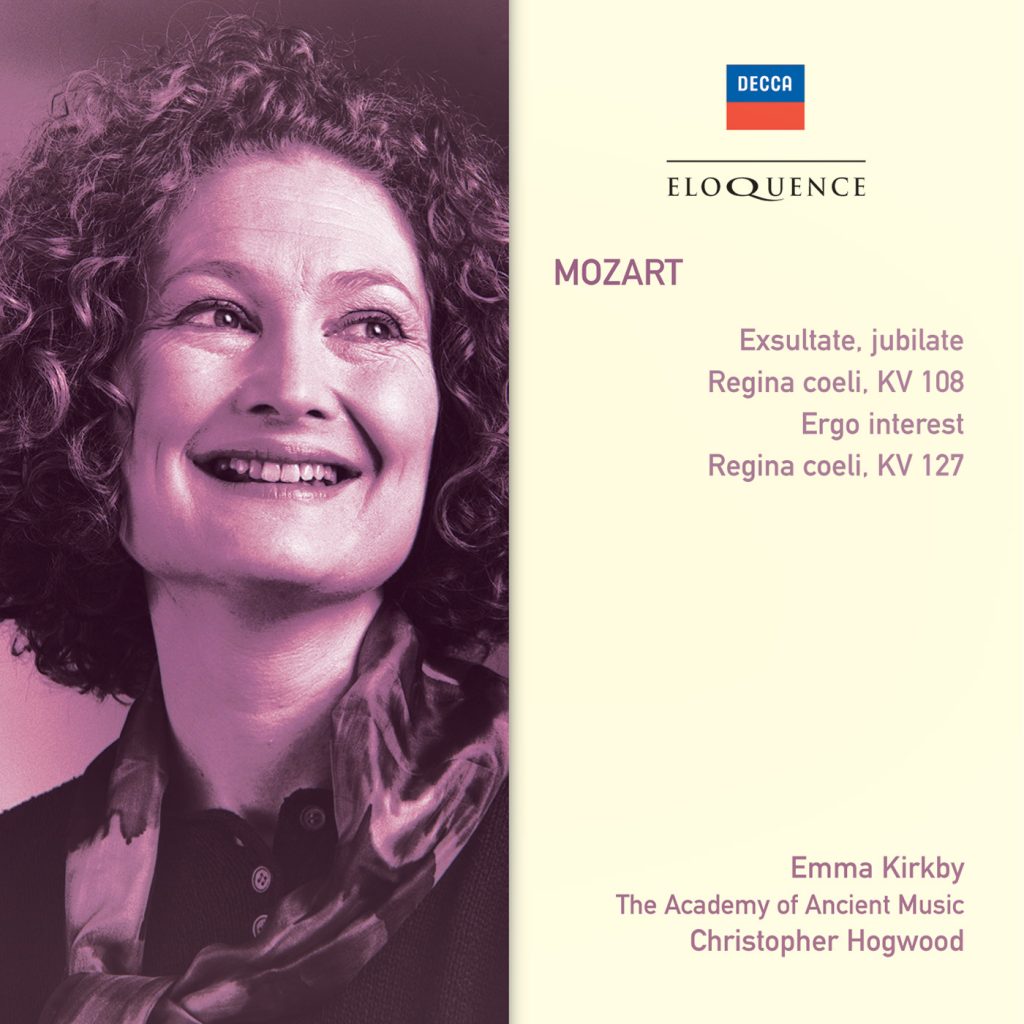
Mozart was brought up at the court of the Prince-Archbishop of Salzburg, and the music of the Roman Catholic liturgy was central to his early experience. Salzburg had its own ecclesiastical musical traditions, dating back well into the seventeenth century with such men as Andreas Hofer, Heinrich Biber and Georg Muffat; more immediately relevant to Mozart, however, were Johann Ernst Eberlin, court organist and Kapellmeister in the middle of the eighteenth century (whose work he is known to have admired), his own father, Leopold Mozart, and Michael Haydn, who held a court appointment at Salzburg from the early 1760s. He had plenty of models; and indeed work by Eberlin, Michael Haydn and Leopold Mozart which he copied out were long taken to be his own.
WOLFGANG AMADEUS MOZART
Exsultate, jubilate, KV 165 (158a) (Salzburg version):
Exsultate, jubilate
Tandem advenit hora
Tu Virginum corona
Alleluja
Regina coeli, KV 108 (74d)
Ergo interest, KV 143 (73a)
Regina coeli, KV 127
Emma Kirkby, soprano
Westminster Cathedral Boys Choir [5 & 7]
Chorus master: David Hill
Chorus of The Academy of Ancient Music [5 & 7]
Orchestra of The Academy of Ancient Music
Christopher Hogwood
Recording producer: Peter Wadland
Recording engineer: John Pellowe
Recording location: Kingsway Hall, London, November 1983
‘Emma Kirby sings with stunning virtuosity and apparently effortless fluency … these are spectacular performances, enhanced by the fine choral and orchestral support guided by the sure hand of Christopher Hogwood, and vividly recorded’ Gramophone
‘This is a superb issue, and deserves wide circulation’ MusicWeb
‘A refreshing and enjoyable collection’ *** Penguin Guide
